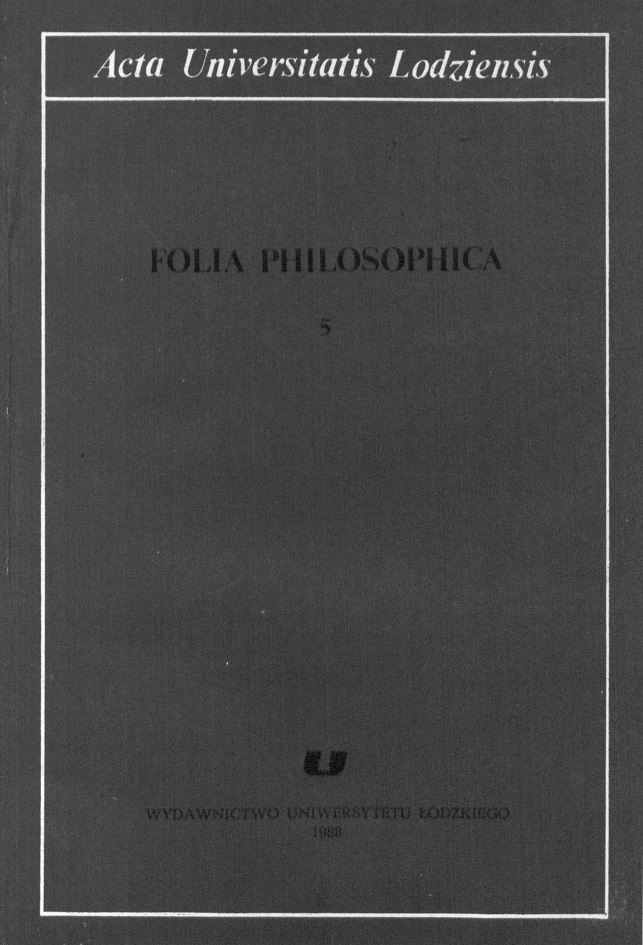Pojęcia "zaniechania działania” w świetle koncepcji logicznej teorii działania
DOI:
https://doi.org/10.18778/0208-6107.05.07Abstrakt
The way in which the term "activity" is understood determines foundations for the logical theory of activity. Activity understood as performance of changes or forbearance of performing a change is an object of G. H. von Wright's logic of actions based on the logic of changes. Generalization of such treatment of activity is T. Kubiński's concept according to which it consists in adopting a specific attitude towards a change; an object of nth logic of actions is description of n attitudes to changes. The distinction made between two main attitudes, out of which one expresses itself in activity and the other in its forbearance makes it necessary to specify more exactly the concept of forbearance. Analysis of this concept brings out strongly its ambiguity, it emphasizes the difference between non-activity and forbearance. Defining forbearance as non-activity in the situation, in which a possibility of activity did exist involves application of one of the modal concepts. The concepts in which forbearance is not taken into account constitute an argument justifying an assertion that forbearance cannot be expressed by the negation function. Attempts at formalization of intuitions connected with the term "forbearance of activity" show how deeply entangled it is in modal contexts, and even in deontic concepts if it is interpreted as "forbearance of activity".
Pobrania
Opublikowane
Jak cytować
Numer
Dział
Licencja

Utwór dostępny jest na licencji Creative Commons Uznanie autorstwa – Użycie niekomercyjne – Bez utworów zależnych 4.0 Międzynarodowe.












